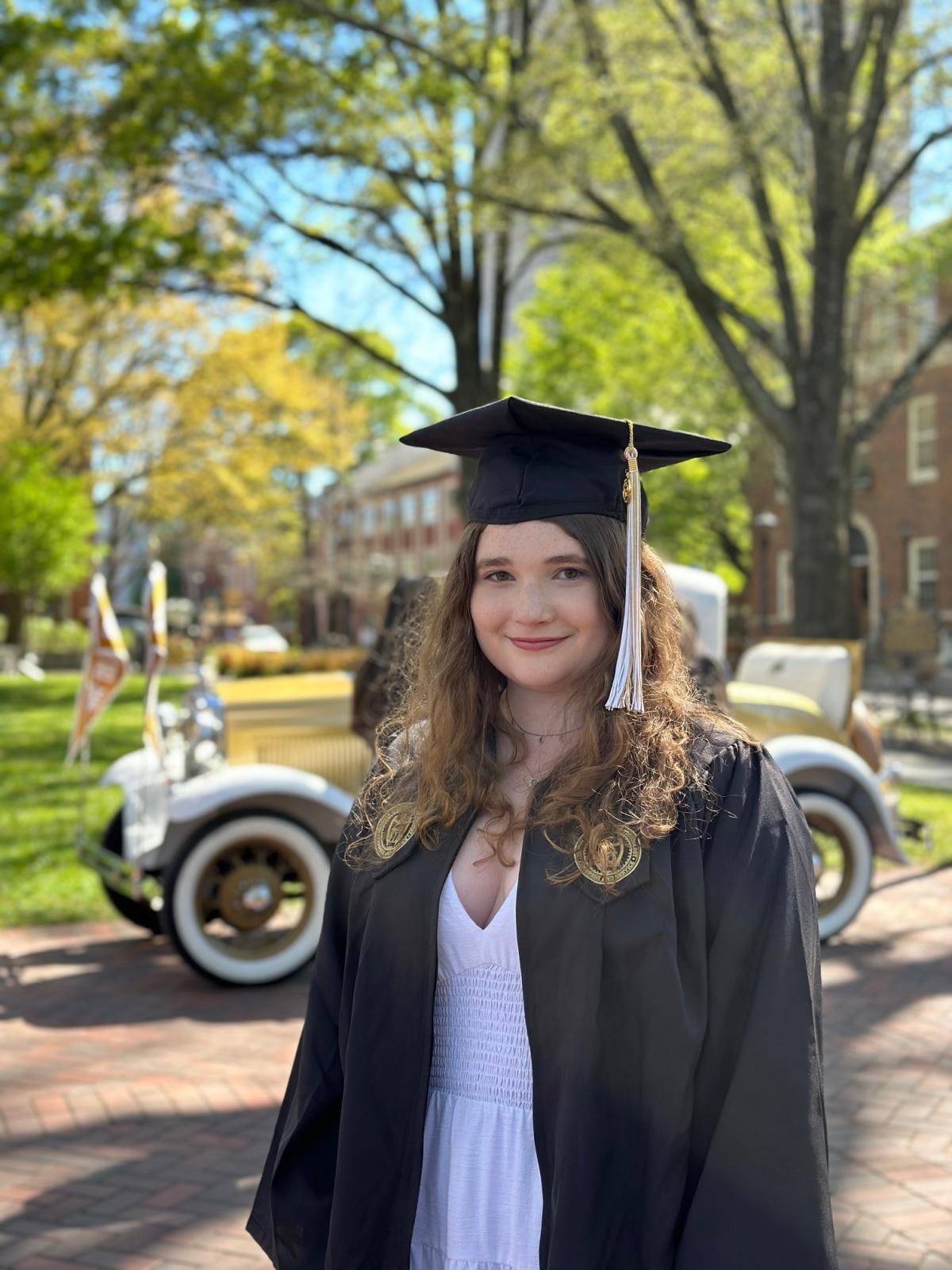
Sabrina Klein, ChBE 2024, finished first grade shortly after starting and had enrolled in North Central Texas College by age 12, earning two associate degrees in art and sciences before enrolling at Georgia Tech at 16.
“At the community college, I was taking classes with 20-year-olds who were talking about car payments when I couldn’t even drive yet,” she said.
While her advanced educational progress had long left her feeling disconnected socially (outside of activities like soccer games with her own age group), she had closed some of the age gap by the time she enrolled at Tech because other first-year students were only two years older than her.
“Georgia Tech is the place where I bloomed socially because I’d never had the opportunity to as much before,” said Klein, whose family had moved around the country a lot due to her father’s military service.
She built strong friendships through participation in Georgia Tech’s student chapter of the American Institute of Chemical Engineers (AIChE) and the Georgia Tech Astronomy Club, where she served as historian and met her boyfriend, Oscar Haase (Physics and AE 2024).
She also worked as an undergraduate researcher in Professor Natalie Stingelin’s lab, working on nanocellulose-related projects. “It was a lot of fun getting lots of hands-on lab experience,” said Klein, who is now 19.
“I considered Peer Mentoring, but I thought students might not like having a mentor younger than them.”
Career Start at Celanese
After Klein graduated in August 2024 (in just over three years at Tech with transfer credit), she and Haase moved to Houston, Texas, where she started as an associate process engineer at Celanese, and he enrolled in graduate school for physics at Rice University.
Klein had interned at Celanese – a position she found through a Georgia Tech career fair – before graduating with her degree in chemical engineering. The company is a global leader in the production of specialty materials and chemical products that are used in most major industries and consumer applications, including acetyl products and polymers.
“In my role as a process engineer in the Utilities unit at Celanese, I’m excited to work on projects that make a real impact on efficiency and sustainability,” Klein said. “A highlight has been implementing a project I developed as an intern, where we’re optimizing our demineralization system to reduce wastewater and save costs.”
She added: “It’s rewarding to see my initial design come to life, and my background from Georgia Tech has been a huge asset—giving me the technical foundation to dig into the details and make adjustments as we implement.”
Of her education at ChBE@GT, she said, “I loved all the professors. The program is very challenging, but as long as you’re willing to put in the work, it’s very rewarding.”
After community college, she said one misconception she had would be how difficult Georgia Tech would be for her. “While it’s true that I had to put in a lot of effort, there was still time to have a social life and create college memories.”